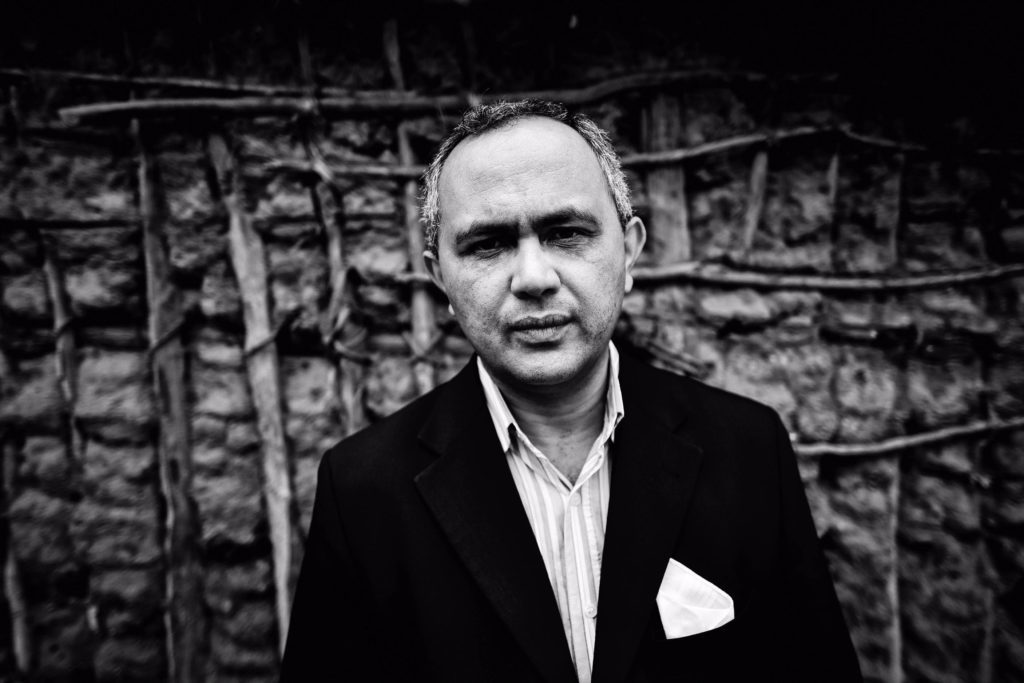A professor led a group of American poets on a nine-day visit to Cuba this summer – the first trip by American poets since the country’s revolution nearly 60 years ago.
Narlan Teixeira, a professor in the romance, German and Slavic language department, organized the trip, which included meetings with Cuban officials and days of poetry readings. Members of the delegation said the trip helped re-establish an important cultural link between Cuba and the United States after decades of political tension between the two countries.
Teixeria said he started planning the trip in September 2016, before he began teaching at GW. After his father died in 2009, Teixeira said he wanted to fulfill his father’s dream of traveling to the previously closed-off country.
“My father was very interested in Cuban music. I’m from Brazil, so I grew up being exposed to Cuban music in the 70s, and he was very much interested in Cuban rhythms and singers,” he said. “Because my father couldn’t go I thought that I had to go, this thing from father to son.”
In coordination with Cuban officials, Teixeira planned a nine-day trip to the capital Havana, bringing together both Cuban and American writers. The delegation included Robert Hass, who won the Pulitzer Prize for Poetry in 2008, and eight other poets from across the United States.
The trip aligned with the Havana International Poetry Festival, which takes place every July.
“It was fantastic to interact with Cuban poets because they’re really hungry for interactions with foreigners.”
Once there, Teixeira said Cuban officials planned the agenda and treated the vistors to cultural events like open air poetry readings and a trip to author Ernest Hemingway’s former Cuban residence. Many of the readings were open to the public in Cuba, to allow interaction across cultures, and hosted by La Unión de Escritores y Artistas de Cuba, a government-run organization of Cuban writers and artists.
Teixeira said the delegation had a “full agenda,” including meetings with Cuban cultural figures and at least two poetry readings every day. The poetry readings were held in Malecón, a prominent esplanade in Havana, and other popular squares and scenic locations in the city.
“It was pretty cool, because you would start to do these poetry readings and then this huge gathering would form around you,” Teixeira said.
Since no delegation of American poets had travelled to Cuba in about 60 years, Teixeira said the trip was a major milestone, allowing Cuban and American artists to reconnect after decades apart. Following the revolution in 1959 that swept Former Cuban President Fidel Castro into power, the U.S. government stopped all trade with Cuba and banned most travel between the two countries.
Only in 2015 did the United States restore diplomatic relations with Cuba and loosen travel restrictions.
“This is not the first time that Cuban literature and American literature kind of shake hands,” he said. “But in this contemporary history I believe it was the first time that actually a major American delegation went there, to re-establish this literary cultural bond.”
“As artists and poets we build bridges. That’s how we connect on a human level and transcend politics.”
Hélène Cardona, an actress and poet, said she first heard about the trip when Teixeira contacted her on Facebook.
“It was fantastic to interact with Cuban poets because they’re really hungry for interactions with foreigners,” she said. “They really want to know Americans and have exchanges. They’re very hungry for those literary experiences.”
During their travels, Cardona said she was surprised by the friendly reception they received and the warmth of the Cuban people.
“They are so friendly. It was just stunning to experience that,” she said. “As artists and poets we build bridges. That’s how we connect on a human level and transcend politics. To mix directly with Cubans, especially artists, felt really great.”
Cardona said she organized a Cuban documentary crew to film the group’s time in Havana and their visit to Hemingway’s former home, just 10 miles outside of the city. The film is going through the editing process and may be released early next year.
Claudia Keelan, a professor of English and director of the creative writing program at University of Nevada – Las Vegas, who attended the trip, said Cubans packed the poetry readings, eager to hear from American writers.
“When you give a poetry reading in Cuba there are many more people than would go to a poetry reading in the United States,” she said. “There everyone came and welcomed Americans there that they had never seen.”
Keelan said the visit was a good-will tour after President Donald Trump placed new restrictions on travel to Cuba.
“I really imagined the whole trip as kind of a peace journey,” Keelan said. “We were going to Cuba at a time when our new president had said he was going to crack down on Cuba after President Obama had opened Cuba for the first time since 1959.”





